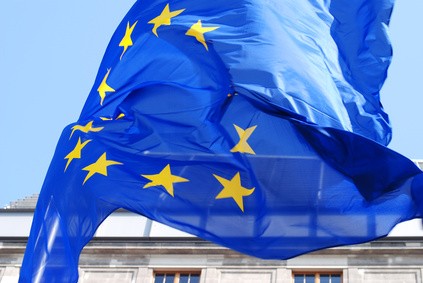EUROPE – A concept under scrutiny
16/09/2015
In recent months, the Greek crisis has placed a severe strain on Europe and massively commandeered the skills and capacities of the regional “top management”. But there are many other strategically important fields of action that urgently need sustainable concepts and their implementation.
The original strategic goal of the European Community, which has meanwhile become the European Union (EU), was peacekeeping, but this supranational entity rapidly also acquired an economic component: a powerful economic area was to be generated that would pack far more punch in world affairs than its individual member states.This plan has succeeded in a number of important aspects: in 2012, the EU was awarded the Nobel Price for Peace and the number of its member states has increased from the six founder members to 28 nations today. Its combined gross domestic product (GDP) slightly exceeds that of the United States and is significantly greater than China’s.
On-going conflicts about national and European responsibilities within the EU point to another problem area: withering cohesion within the community. Increasingly, individual member states often promote their own interests to the detriment of others or imply that other members are doing so.Also, the enormous surge of refugees entering Europe holds potential for conflicts. The willingness to receive these people in one‘s own homeland varies widely from country to country. On the other hand, the readiness of European governments to sustainably improve the situation in the countries of origin leaves much to be desired.At the same time, Greece puts strain on the European Union. The country takes up money, time and patience, without being willing to adequately contribute to the community. Worries are huge that other debt-ridden EU-countries might follow suit. The term “transfer union” is being mentioned more and more. The British government is seriously thinking about an EU exit and the role of Germany within the community is coming in for increasing criticism.Despite all these adversities, the figures for the European economy are still positive. One reason is the low price of oil. However, this advantage has not resulted from any action on the part of Europe itself but is largely determined by the oil-producing countries. Another positive economic factor is the weak Euro, which fuels exports but also reflects the diminishing trust of international investors in the economic strength of the community. The record low of interest rates has also stimulated growth. But a huge share of the ECB’s expansive strategy has not reached the real sector of the economy. Instead, stocks, real estate and other assets markets have been booming. Furthermore, the ECB has started out on a questionable course of large-scale bond purchases and financial emergency assistance for most probably insolvent banks in Greece. This has considerably shattered trust in the independence of the central bank and policy in Europe.Moreover, some factors are hampering economic growth, e.g. low population growth and the decreasing international competitiveness in Europe. The latter is found not only in so-called peripheral countries but also more and more in big core countries like France or Italy. Even Germany has to question whether it is doing enough in that regard. Structural reforms within Europe are indispensable, especially in the fields of education, infrastructure and labor costs in order to be sufficiently prepared for the future. All these individual aspects show that almost 65 years after its institutionalization, implementation of the European idea is in a critical phase. To make it a success story, all participants should call to mind the goals of the community and value them so highly that all necessary and partly also painful reforms are worth the trouble.
The good ship Europe must prove that it can stay afloat – even when the sea gets really rough.© Schlegel und Partner 2015
The good ship Europe must prove that it can stay afloat – even when the sea gets really rough.© Schlegel und Partner 2015